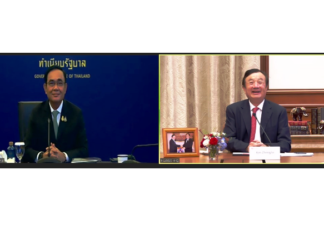New Delhi, November 11, 2020: Retail investors boosted their shareholdings in Indian companies to an 11-year high in September with first-time investors continuing to pump in more money into equities.
Stocks have rallied in the September quarter as the unlocking of businesses and uptick in economic activity led to a recovery in the overall economy.
Shareholding of retail investors in 1,605 listed companies hit an 11-year high of 7.01% in the September quarter, according to Prime Database. This compares with 6.74% in the June quarter and 6.46% in the September quarter last year. In value terms, retail holding in these companies hit ₹10.58 trillion at the end of September for the first time compared to ₹9.15 trillion at the end of the preceding three months.
According to the reports published in livemint.com Investors opened 3.4 million new demat accounts in the September quarter, according to the Securities and Exchange Board of India (Sebi) data. In September, 1.3 million demat accounts were opened—the highest in the year so far. A demat account is opened by an investor with a depository participant to invest in securities such as stocks and bonds. The securities are held in digital format.
“What is also significant to note is the continuing overwhelming presence of retail investors in mid-cap and smaller companies, which institutional investors typically stay away from. The picture is very different if one looks only at Nifty companies. The retail share in these companies was 6.49% in Q2, declining marginally to 6.09% in case of top 100 companies listed on NSE in Q2,” said Pranav Haldea, managing director, Prime Database Group.
As on 30 September, the top 10 companies with the highest retail holding are Reliance Industries, Hindustan Unilever, HDFC Bank, Tata Consultancy Services, L&T, Infosys, Housing Development and Finance Corp., ITC, Asian Paints and Bajaj Finance.
Data showed that the average stock price of companies, in which retail investors have increased their stake in the September quarter, gained by 6.97%. On the other hand, retail holding went down in 481 companies. The average stock price of these companies increased by a much higher 25.7%.
As the overall structure of the market remains positive, analysts believe participation by retail investors will increase consistently.
“At 18 times FY22 earnings, Nifty valuations is also not very expensive as it is trading closer to its long-period averages. With the economic activity recovering fast, more earnings upgrade cannot be ruled out. Further strong global markets can keep the liquidity abundant in the system, thus providing support to the overall market,” said Motilal Oswal Financial Services.
Meanwhile, the percentage holding of private promoters in companies listed on NSE continued to increase, hitting a record high of 45.38% by value as on 30 September, up from 44.43% in June. Over an 11-year period (since June 2009), private promoter ownership has been grown nearly five-fold to ₹68.49 trillion from ₹14.51 trillion on 30 June 2009. This is mostly led by new listings of companies in stock markets and a high number of buybacks in the last few quarters.
































